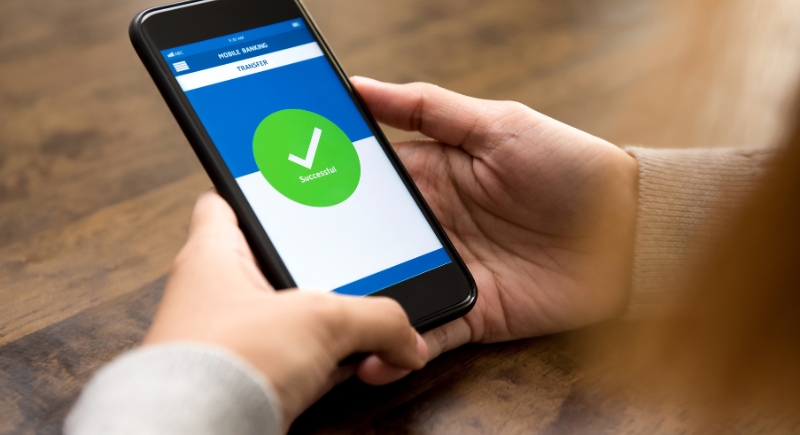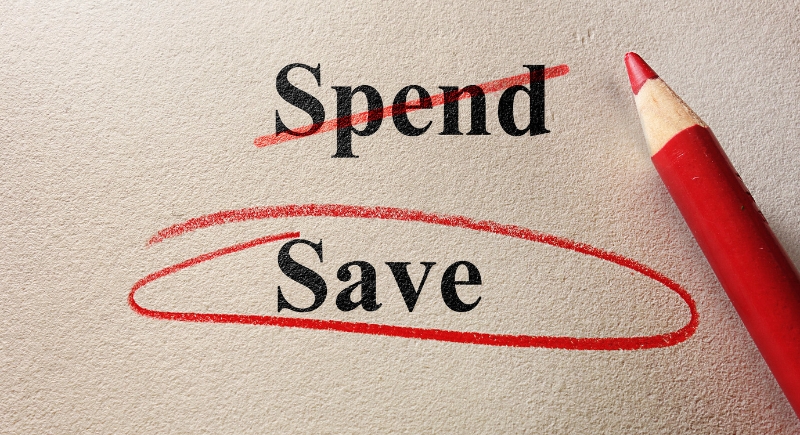8 Mini Habits for Long-Term Retirement Success
Retirement is a whole new book instead of just a chapter in it. And like any good story, how it unfolds depends on the tiny daily habits. Big goals might look flashy, but it’s the low-key, consistent stuff that sticks. Here are a few simple things that can add up over time.
Check Your Bank Account Every Morning

Credit: Getty Images
A single glance at your balances before starting the day builds awareness and keeps spending in check without having to track every penny. A 2023 report by J.D. Power showed that folks who frequently review their finances report higher confidence in retirement planning.
Meal Plan Once a Week

Credit: pixelshot
Planning out meals doesn’t just reduce the “what’s for dinner?” stress—it also cuts back on food waste and keeps grocery spending predictable. The Bureau of Labor Statistics says food is among the top three retirement expenses. Prepping even just five meals a week can save hundreds of dollars monthly.
Walk for 15 Minutes After Lunch

Credit: pexels
There is no need for a fancy gym membership or complicated workouts. A 15-minute walk post-lunch improves digestion, regulates blood sugar, and adds movement to your day. Walking daily can also significantly reduce the risk of heart disease, which remains a significant concern for folks over the age of 60.
Read One Article About Retirement Weekly

Credit: Getty Images
Whether it’s about Roth conversions, Social Security tips, or housing trends, staying informed keeps you ahead. Even one reliable article a week is enough. Morningstar, Forbes, and NerdWallet offer digestible info that’s updated regularly. The more you know, the less you’ll stress when financial choices arise.
Review One Monthly Bill Every Friday

Credit: Canva
Pick one bill—cell phone, streaming service, utilities—and look it over. You might spot something off or realize you’re still paying for that thing you stopped using. These little check-ins can plug leaks in your budget. AARP estimates the average person pays over $300 annually on forgotten subscriptions alone.
Talk About Money With Someone You Trust

Credit: Getty Images
Doesn’t have to be a big conversation. A short chat with a spouse, friend, or adult child can keep things honest and balanced. Couples communicating openly about finances are twice as likely to feel confident about their retirement savings. Say it out loud, and it sticks better.
Drink Water Before Coffee

Credit: Getty Images
It sounds silly, but starting your day with water hydrates your brain and helps with focus. Mild dehydration can make you tired or irritable—neither is fun when you’re trying to enjoy your day or tackle paperwork.
Write Down One Win Every Day

Credit: Canva
Grab a sticky note or use your phone—it doesn’t matter. Noticing something that went right each day helps with long-term positivity. Research from UC Davis showed that people who practice daily gratitude are more likely to report better physical health and stronger relationships. It’s brain training, but easy.
Automate Your Savings

Credit: Getty Images
Set up a small auto-transfer—$5, $20, whatever feels light—to go into a retirement account or savings bucket each week. You probably won’t miss it, and over time, it adds up. Automated savers tend to stick with their goals more consistently than those relying on willpower alone.
Track How Many Steps You Take

Credit: freepik
Most smartphones already do this, so there’s no excuse. Studies in The Lancet have proven that people who walk 6,000+ steps a day have lower mortality rates. Even if you’re not hitting marathon numbers, watching the count helps you move more.
Declutter One Drawer a Week

Credit: Canva
Retirement often brings downsizing or a shift in how space is used. Tackling one drawer or shelf each week makes future transitions a lot easier. It also reduces decision fatigue. A cleaner space equals a clearer head, and that’s good whether you’re moving or just trying to find your reading glasses.
Set a “No-Spend” Day Every Week

Credit: Canva
Pick a day and commit to spending zero dollars. No takeout, no Amazon, no last-minute gas station stops. It’s a surprisingly satisfying challenge. Folks have reported spending at least 10% less monthly by incorporating one no-spend day weekly. It helps you get creative—and grateful—for what you already have.
Watch a Financial Video on Sundays

Credit: Getty Images
YouTube is packed with retirement-friendly financial content. Find a creator who breaks things down in plain English—someone like The Money Guy Show or Teri Ijeoma—watching something short once a week turns confusing topics into stuff you actually understand. You’ll be surprised how fast your confidence grows.
Practice Saying “Let Me Think About It”

Credit: Getty Images
Impulse spending doesn’t always show up as big purchases. Sometimes it’s an extra gadget, donation, or vacation package that pops up too fast. Saying “Let me think about it” gives your brain a buffer. Psychology Today reports that even a five-minute pause can cut unnecessary spending by more than 30%.
Make One Fun Plan Every Week

Credit: Getty Images
Retirement is also about enjoying time. Planning one thing you’ll look forward to—lunch with a friend, a movie night, a trip to the farmer’s market—boosts happiness. A 2022 study from the University of Zurich found that people who schedule small pleasures weekly report higher life satisfaction over time.